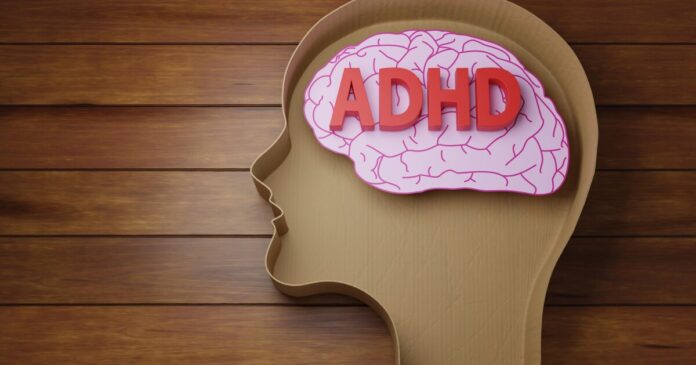Groundbreaking research has uncovered a set of just three gene variants that can increase the likelihood of attention-deficit/hyperactivity disorder (ADHD) by up to 15 times. It’s a remarkable finding, considering that thousands of mutations only come with a nominal elevated risk.
An international team of scientists led by iPSYCH at Aarhus University has shown that three rare variants in the genes MAP1A, ANO8 and ANK2 play a significant role in ADHD, a condition that’s largely genetic and highly heritable.
“We can now, for the first time, point to very specific genes in which rare variants confer a high predisposition to developing ADHD,” said senior author Professor Anders Børglum from the Department of Biomedicine at Aarhus University. “The identified variants very likely have a highly damaging effect on the genes, and they show us precisely which genes and fundamental biological mechanisms may be affected.”
Simon Fischel/AU Health
The team analyzed the genetic data of nearly 9,000 people with ADHD who took part in the Danish iPSYCH study, and 54,000 individuals without the condition, and compared that with brain cell function data and reports on education and socioeconomic status of Denmark residents. People with these gene mutations line up with those who have, on average, lower educational achievements and poorer socioeconomic status – often seen in individuals with ADHD.
While rare, the mutations appear to disrupt communication between neurons, by affecting genes expressed in these all-important nerve cells in the brain. This interference is a hallmark of ADHD. The variants especially impact dopaminergic and GABAergic neuron function – the cells that play key roles in regulating attention, impulse control and motivation.
“Our findings support that disturbances in brain development and function are central to the development of ADHD,” said co-first author Ditte Demontis, Professor at the Department of Biomedicine at Aarhus University. “We have also analyzed which proteins interact with the proteins encoded by the three identified ADHD genes, and we have identified a larger protein network that also plays a role in other neurodevelopmental disorders – including autism and schizophrenia. This provides insight into the biological links across several psychiatric diagnoses.”
Importantly, these new findings only strengthen our understanding of ADHD’s genetic blueprint – something that current assessment protocols don’t account for. Right now, the US has no specific diagnostic tool, with clinicians instead compiling data through medical exams, interviews, family and personal history, school records and unofficial rating scales. Genetic markers – which are present even before birth – could help individuals, parents and healthcare professionals with risk awareness, diagnosis and treatment.
“The study provides a new and concrete direction for mapping the biological mechanisms involved in ADHD, because we now know causal genes with high-effect variants,” said Børglum. “They give us insight into some of the fundamental biological processes, which can guide the design of deeper mechanistic studies – for example, to identify new therapeutic targets.”
These findings, add the researchers, are by no means the complete story, with many more gene variants yet to be discovered that may play a small or, like these rare mutations, large role in the presentation of neurodivergence.
“Yes, and we are only at the beginning of uncovering these rare high-effect variants,” said co-first author and postdoctoral researcher Jinjie Duan. “Our calculations show that there are many more rare causal variants that can be identified in even larger studies. In the current study, we can already point to 17 additional genes with rare variants that are very likely to be causal.”
It’s the latest research to offer clues to the genetic nature of ADHD, which is still an emerging area of neurodevelopmental study.
The study was published in the journal Nature.
Source: Aarhus University


